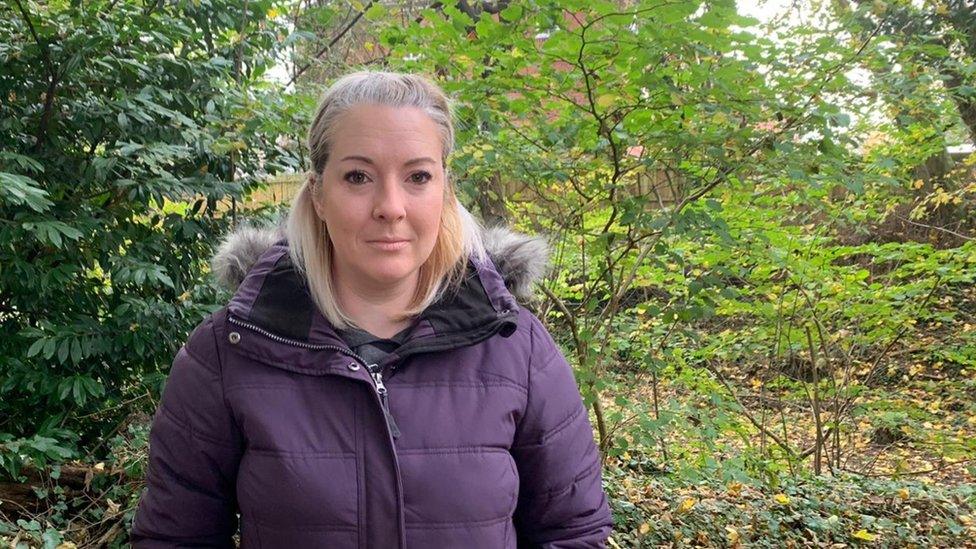Covid and mental health: 'I bought a car but driving scares me'
- Published

Beth has the help of loved ones to help her cope
When Beth Rees bought a car, even though she is terrified of driving, she knew her impulse buying was a serious problem.
The 32-year-old's borderline personality disorder means she can find it difficult to control her online spending.
The old, red Ford Ka was eventually traded in and she is now surrounded by support from loved ones to tackle the issue and her resulting debts.
Yet, she knows that her mental health condition means she could slip back into chasing the "elation" of buying unnecessary things online.
She is one of many people with similar conditions who are at risk, particularly during lockdown, according to a charity.
The Money and Mental Health Policy Institute wants retailers to give shoppers more control over their spending, with the choice of opting out of buy now, pay later offers, more cooling-off periods, and less "pushy" marketing.
Miss Rees said she was diagnosed with her condition three years ago, but said the problems started when she was at university and had access to student loans for the first time.
"The elation when buying something is an addictive feeling, it is like a drug," she said.
She can control spending in a store, but online is much harder.
"Sometimes things turned up, but you can't remember buying them," she said.
Clothes and gifts for family and friends were the most common buys, leading to maxed out credit cards and debts of £4,000.
That led to a sense of shame, trying to keep the problems to herself, but then getting panic attacks when letters arrived from lenders chasing the money.
She said the first step to getting on top of such a problem was to talk to someone about it, but she also wanted to see retailers do more to help.
Lockdown crisis
She lives in Wales, which is just coming out of lockdown, but other parts of the UK have restrictions that mean people are staying at home and spending more time online.
"Online retail can be a lifeline for people living with mental health problems who may struggle to leave the house, especially during the pandemic. But pushy sites and tempting buy now, pay later offers can cause people to spend more than they can afford, risking both their financial and mental health," said Helen Undy, chief executive of the Money and Mental Health Policy Institute.
"This is particularly challenging in lockdown, with many of us spending longer online, bombarded by adverts telling us that the latest new thing will make us feel better. At its worst, this can leave people in thousands of pounds of debt, with a single day's shopping spree causing years of misery."
The institute said its research suggested people with mental health conditions were more likely than the wider population to spend more money online than they could afford and more likely to be unable to control spending.
There is a cooling-off period for products bought online - allowing consumers to return items within 14 days for a refund.
The institute is calling for retailers to extend this to include an option for those with mental health conditions to cancel a purchase the day after something is bought online.
The UK's online retail association, IMRG, said that that would not be too difficult to include technically in a checkout page, but there were complications as retailers tried hard to optimise the efficiency of their services for consumers.
A spokesman also said that marketing had switched from night time to early morning in response to some of the issues raised in the past.
- Published17 July 2019

- Published6 October 2020
